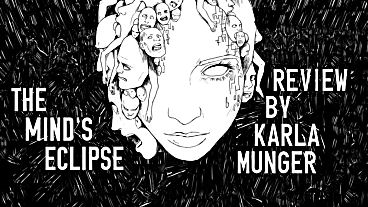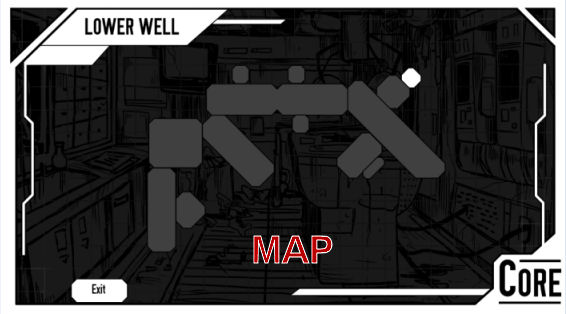
The Mind’s Eclipse Review
All-in-all, The Mind’s Eclipse is a wonderful game. It doesn’t throw roadblocks in front of you or present brain-cramp inducing puzzles or do anything else that inspires hair-ripping







Genre: Interactive Sci-Fi Graphic Novel
Release date: January 25, 2018
The Mind’s Eclipse from developer Mind’s Eclipse Interactive is an interactive sci-fi graphic novel that’s presented in a distinctive black-and-white, hand-drawn art style that’s quite appealing.
It has an intelligently written, morally ambiguous narrative. It asks legitimate questions concerning the lengths to which science should go relative to life and death. It also illustrates the dire circumstances that could ensue if things are pushed too far.
None of the game’s characters is all good or all bad, which lends credibility to the proceedings.
You are Jonathan Campbell. You awaken in a hospital located on Europa, one of Jupiter’s moons, in a facility known as the CORE. The CORE was to have housed a utopia. Your utopia. But something has gone very wrong.
Most of your memory is missing. At first, you don’t even know who you are. You’re joined by a wisecracking AI known only as “L,” who tells you the facility is running out of oxygen and that you must leave ASAP.
You must also work to regain your memory and discover what has happened. L can help you with this, but only up to a certain point.
More and more is revealed as you interact with datapads and terminals throughout the CORE. (Note: This requires quite a bit of reading, as there is no spoken dialog.)
The game’s music and sound effects are excellent. The music never intrudes but enhances the game’s events. At one point, I heard what sounded like deep, heavy breathing. The Mind’s Eclipse is not a horror game, but this effect creeped me out.
The UI and controls are simple but effective. When you first start playing, a screen appears that explains how things work.
Navigation is accomplished via a map, which expands as one moves through the game. Fortunately for me, it’s impossible to get lost.
As you travel from one area to the next, you encounter dead bodies: some mutilated, some killed outright and some the result of suicide. There have been violent struggles to escape. No one has been left alive.
As you begin to recover your memories, you discover that your desire to create a utopia — a world without death or infirmity — has been fueled by panic and grief of a personal nature. When such emotions rule, there is great potential for folly.
I’ll be leaving all other story elements for the player to discover. The Mind’s Eclipse is way too good for me to ruin it with spoilers.
Suffice it to say that the game drew me in immediately and held my interest throughout. I completed it in one sitting that lasted 5-6 hours. No outside help was needed.
I have no problem with the game’s relatively short duration. The developer has used the time necessary to tell the tale — no more, no less. This is a lot more preferable to the inclusion of padding to artificially inflate a game’s length, or cutting corners to a degree that things don’t make sense.
I do have a few minor quibbles. If you need to return to a portion of the map that’s a few locations away, you have to pass through each location rather than jump directly to your destination. Also, Jonathan Campbell is referred to as both Jon and John in the text. And “Nevermind” should be “Never mind.”

All-in-all, The Mind’s Eclipse is a wonderful game. It doesn’t throw roadblocks in front of you or present brain-cramp inducing puzzles or do anything else that inspires hair-ripping. It has a nice, straightforward story that won’t leave you scratching your head. I give it an unqualified thumbs up.
|
+ Intelligently written
+ Distinctive black-and-white, hand-drawn art style
+ Straightforward story
– Map navigation could have been better |

|
System Requirements

Leave a Reply